Dream catchers started as a symbolic decoration with purpose for our Native Americans, but today they’re more or less a decoration and symbolism for peace and blissful sleep. Created from a variety of materials, no two dreamcatchers are alike. What are they and what purpose did they serve?
History, Lore and Legend
Native Americans are big on folk lore and legends, the dreamcatcher proves to be no exception. Ever open minded, Native Americans believe that dreams not only present messages to the dreamer, but they can be “filtered” if you will. The dream catcher is used to filter good dreams from the bad ones. It was common belief that a good dream knew how to navigate the complex web of the dream catcher while the nightmares or negative dreams would get caught up in the web.
When the negative dreams had been captured in the web of the dreamcatcher, they would vanish or evaporate upon the rising of the sun. Whether they work or not is up for speculation and depends on your beliefs, regardless, they’re gorgeous to look at.
Dreamcatcher Step by Step Tutorial
If one was to build his own dream catcher the process would be extraordinarily simple, it can be all broken down into three simple steps and be scaled as needed.
The graphic illustration below showcases the exact steps that one should follow for this spectacular craft.

Photo Courtesy to Homesthetics Magazine
Follow the procedure above to realize one miniature dream catcher project and once you`ve mastered it you can proceed to personalize this craft to great extent; you can use multiple loops or thinner string for a more complex web. Get creative and tailor a dream catcher like no other.
Dreamcatchers Design Examples
Vivid Colors
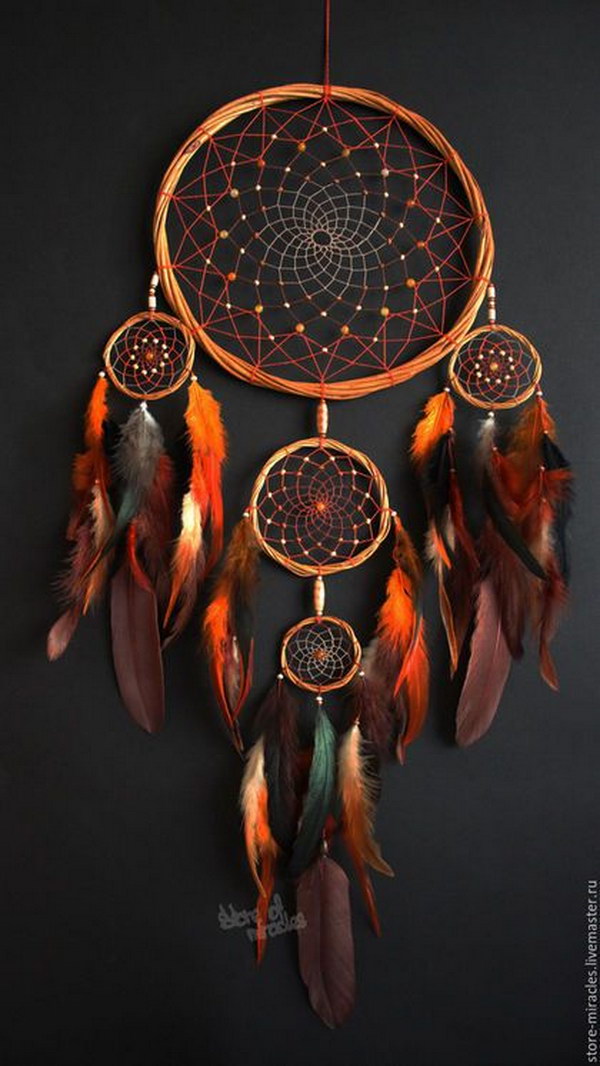
While Native Americans didn’t have access to as many crafts and materials like we did today, they made use of natural dyes which could be obtained from plants. To obtain a vivid red of this color, they might smash some red berries and soak the materials in the resulting mush till the desired color was obtained.
Leather
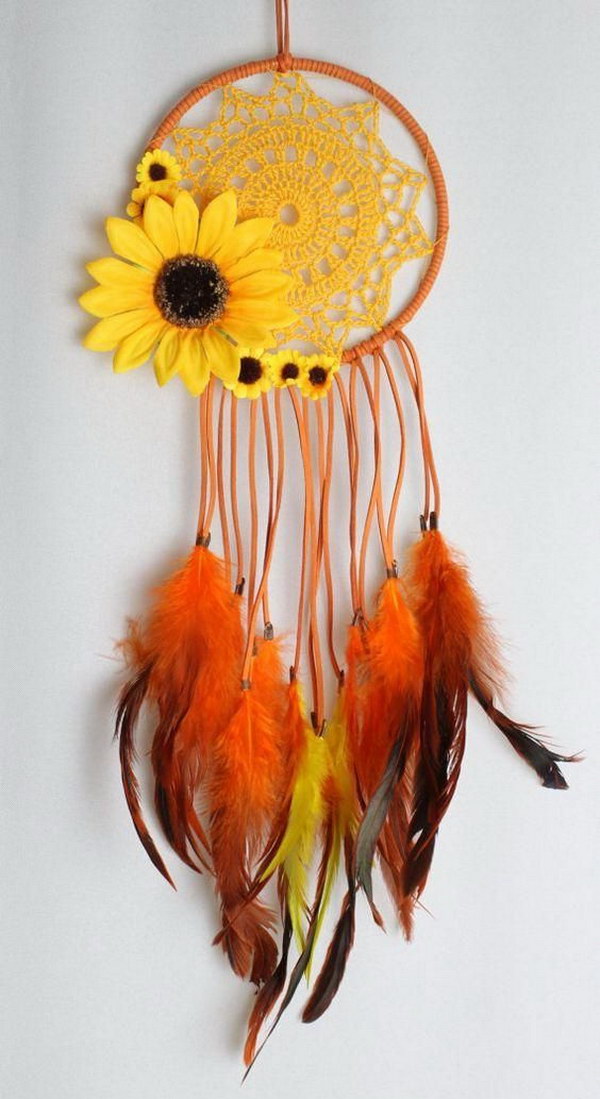
Native Americans were “recyclers” way before the term became popular; ever keen to make use of every part of a killed animal, no animal was wasted. Leather was easily sourced, although complex and time consuming to make.
Beads
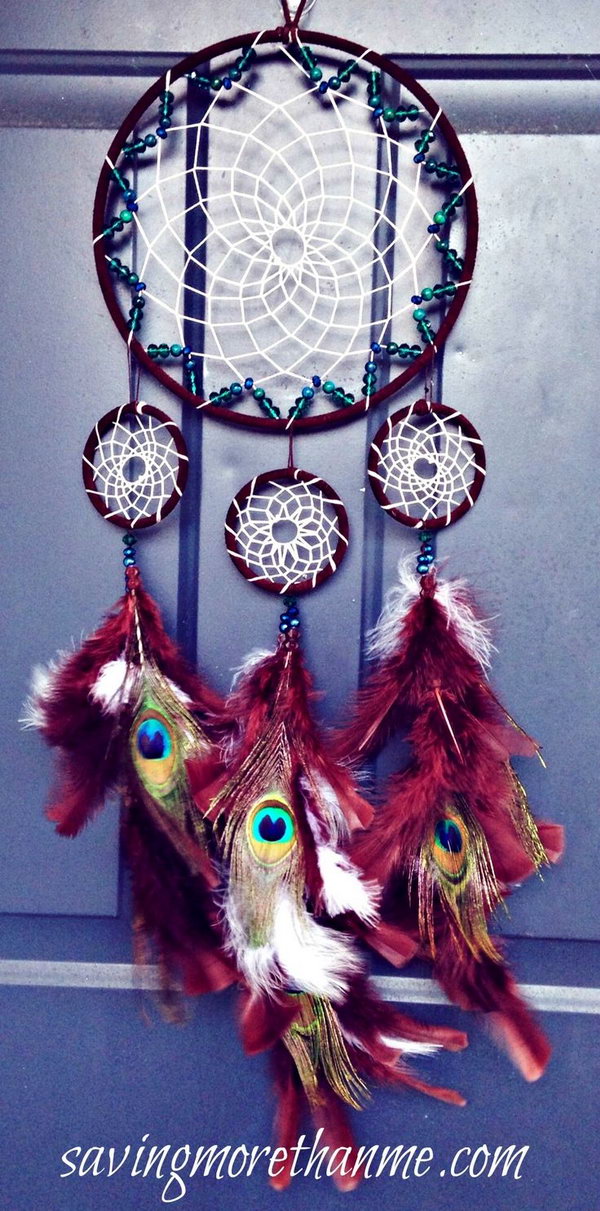
Beads could be made from bones and stones of soft materials. It wasn’t uncommon to find beads or bones made from turquoise or even animal tusks and teeth. While some people would be repulsed by the use of these items, the Native Americans often seen these items in a symbolic manner. In fact, certain powers could be obtained upon the use of these items.
Feathers
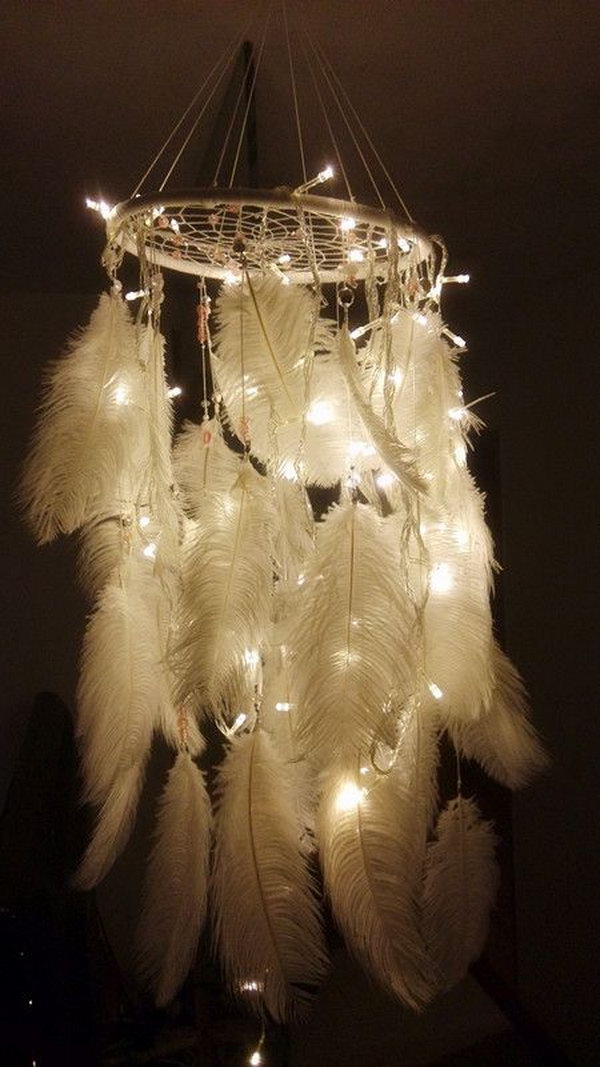
Feathers were readily available and common in not just dreamcatchers, but headdresses too.
Antlers and Bones
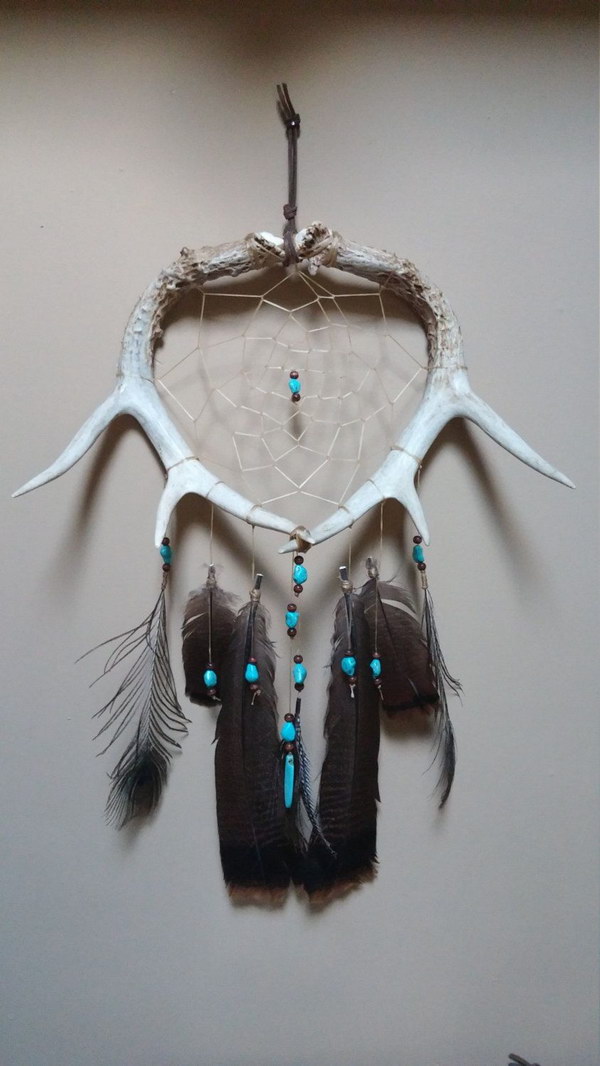
While the hoop of the dream catcher is held in high regard for its “filtering” abilities, a perfect circle isn’t essential for a dream catcher to work.
Owl Dreamcatcher
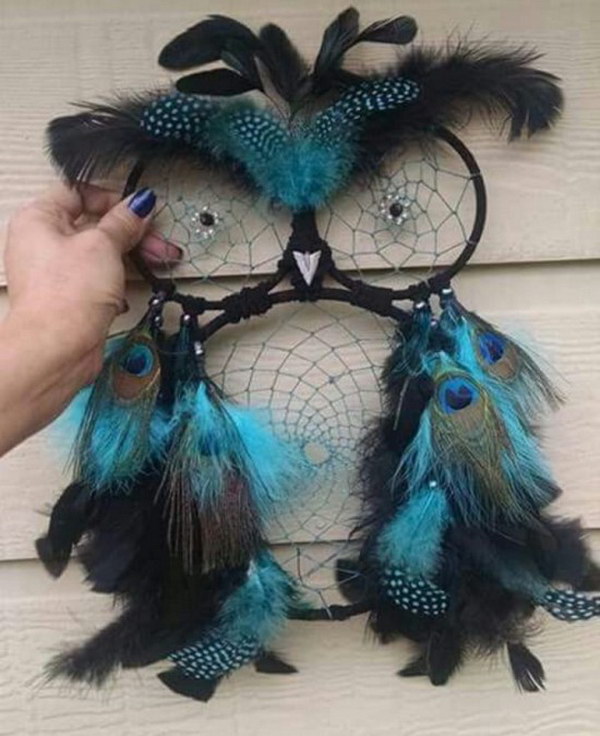
This dreamcatcher is actually a collection of three dreamcatchers united by yarn like material. The owl was commonly seen as wise by the Native Americans, so it seems fitting to be used here.
Modern Dreamcatchers
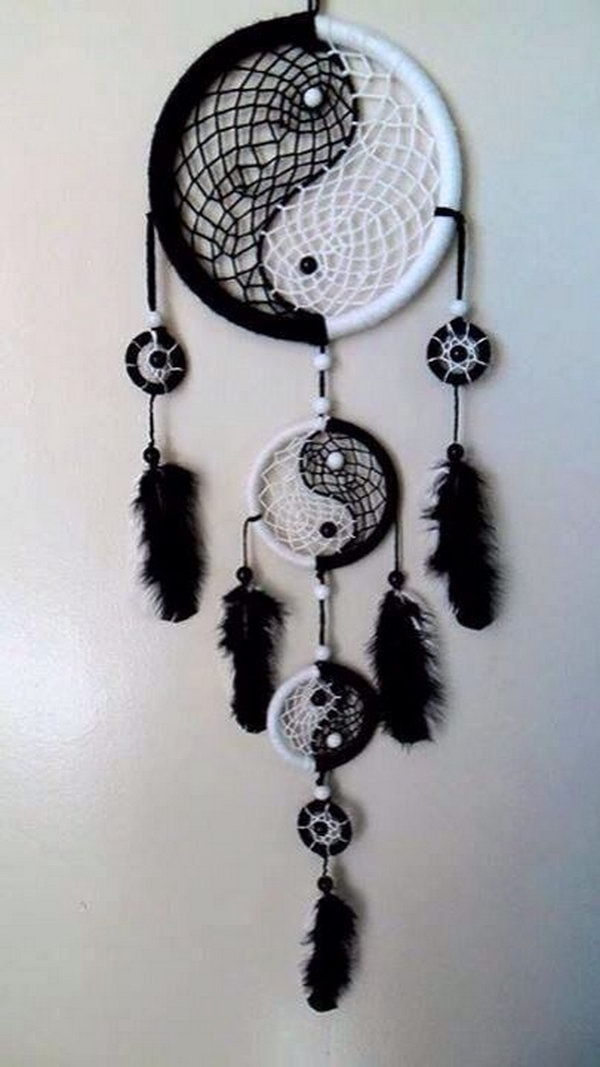
The modern dreamcatcher is popular but very few people actually remember the purpose or lore surrounding the dreamcatcher.
Flexible In Design
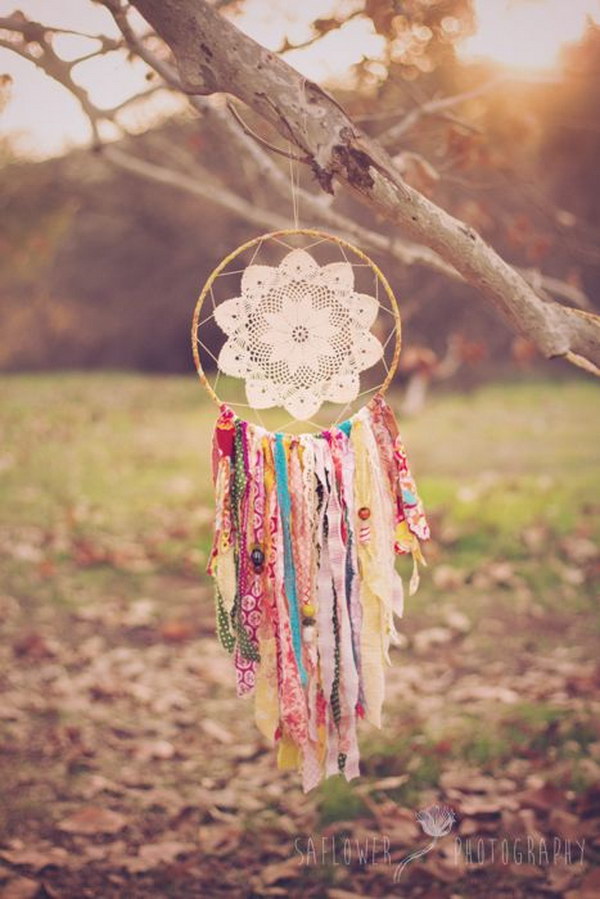
A dreamcatcher is easy to make and can be as simple or as complex as you want to make it. Dream-catchers are interesting to say the least and the crafting of such an item with your little one would surely create a wonderful bounding moment between parent and child; colorful, positive and filled with memory, meaning, the dreamcatcher is surely worth your attention as a craft and do it yourself project.
What do you think ? How do you see dreamcatchers? We would love to hear your opinion on the subject in the comment section below.
—
ABOUT GIUROIU ANTON
Giuroiu Anton is the Founder of Homesthetics Magazine, an online architecture art and design resource. In the spare time he writes as a guest for several architecture websites like Freshome and Architecture”n”Design. He is currently studying Architecture and Urbanism at Ion Mincu University in Romania where he also graduated Tudor Vianu National Computer Science College, his educational background fueling his thirst for technology and design.
Maggie says
Wow. I had no idea that dream catchers were originally used to filter out bad dreams for the person sleeping under them. That’s some really neat lore! Although I don’t suffer from any night terrors, I definitely wouldn’t mind having one above my bed. I think it would be a relaxing to have something like that to look at every night.
Dolores Haley says
I’m not Native American but have great respect for their traditions. I plan to make several Dream Catchers and have fun doing it. I’m glad you can use all sorts of material for the drop downs because I love to recycle and upcycle! Thanks for your article. Dolores Haley
Christina Allen says
I am part native amaerican and I love how you captured some of our stories for the dream catchers. I love making my own dream catchers, I have at least 7 in my room, I don’t know if the native Americans only allow one in a room but if they don’t I’m ahead of the game. Thank you for making this article its great to read up on a little of my history.
Jasssy says
I made and sold dream catchers at a market one time. They are thereputic to make and I had more that one person come back and tell me “they didn’t know how they worked but they certainly worked”. It was very satisfying